Scrub-a-dub-dub! The bathroom is a place where we spend a lot of time cleaning, prepping and grooming. Here are some of the small eco-friendly changes we can make in the bathroom that can make a BIG impact on our health and environment.
Toilet Paper and Facial Tissue
We all use it, so why not choose a toilet paper that’s sustainable? Most of the toilet paper that is sold in the U.S. is harvested directly from the Canadian boreal forest, which is known as the “Amazon of the north” and covers 14% of the Earth’s land. Switching to a forest friendly toilet paper lowers our dependence on harvesting trees that have been growing for decades or centuries, sustains the climate and ecosystems and also helps keep wildlife safe.

The Natural Resources Defense Council (NRDC) and Stand.earth scored and ranked the sustainability of domestic toilet paper brands. See where your toilet paper ranks on the scorecard and see if they get a passing grade. The NRDC and Stand.earth stated that “the United States is a particularly voracious consumer of tissue products. The U.S. tissue market generates $31 billion in revenue every year, second only to China, and Americans, who make up just over 4 percent of the world’s population, account for over 20 percent of global tissue consumption.”
To get an “A”, companies must produce toilet paper using recycled paper content. Some of the companies that scored A’s on their scorecard are Green Forest, Seventh Generation and Natural Value. But wait, did you know toilet paper can be made without trees? Some brands have gone completely paper and plastic free to manufacture toilet paper from alternative fibers such as bamboo. Some of these companies are Who Gives a Crap and Tushy.


Toothbrushes
We are learning about the harmful impacts of plastic on animals, our environment and aquatic life. Our oral care is no exception to that. We have the choice to purchase environmentally friendly toothbrushes while keeping our teeth healthy and clean. There are many to choose from that are made from bamboo, recycled materials and even low waste electronic options like toothbrushes with head replacements. Here’s a quick guide to “6 toothbrushes to keep your mouth clean and green” to give you an overview before you make a purchase.

Toothpaste
Can’t have one without the other! Toothpaste tubes also negatively impact our environment because most are made from plastic combined with aluminum and nylon making it extremely difficult to recycle. In the U.S. alone, over 400 million toothpaste tubes are discarded every year! While it’s difficult to find toothpaste not packaged in a tube at your grocery or retail store, try toothpaste tablets! There are options online that ship directly to you. Here’s an article on the “Best Toothpaste Tablets 2019” with reviews of the products.

Recycling Tip:
We are lucky enough to have local a local organization that can accept your hard to recycle items such as toothpaste and toothbrushes! Learn what Upcycle Treasure Box will accept on their website.
Soap
Soap is something we use so often that we don’t think about the enormous waste is causes. If you use liquid soap, buy a bulk soap refill so you aren’t using so many small disposable bottles, plus it never goes bad! Soaps and cleansers with microbeads inside are especially harmful to our environment because they’re so small, they pass through filters and end up in our rivers and oceans. This is how they enter into our food chain where eventually, we end up consuming the microbeads found in fish and other marine life that we eat. If you choose liquid soap in a plastic bottle or container, be sure to reattach the lid and recycle in your Blue Bin once empty.


Bar soap is a great eco-friendly alternative over liquid soap in the plastic pump that we’ve known for so long. Bar soap is usually made from more natural ingredients that make it better for our skin and the environment! You can pick up locally made, handcrafted bar soap at Herbaria on The Hill,Sammy Soap in Kirkwood or your local farmers market!
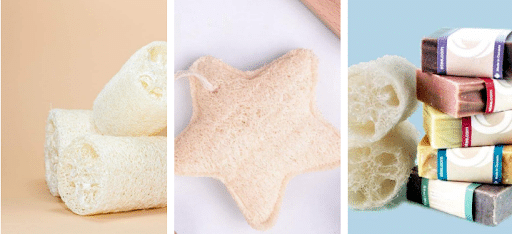
Bath Brushes & Scrubbers
Microplastics in loofahs can make their way down our drains, into waterways, and harm marine life. Go plastic free by using natural loofahs, agave cloths, beechwood bath brushes and other natural scrubbers. You can find 7 different sustainable options here.

Shampoo and Conditioner
As we begin to lower our plastic waste, don’t forget about shampoo and conditioner bottles! These bottles are recyclable in our Blue Bin once empty, but have you heard all the new rave? Shampoo bars are becoming more popular because they’re better for the environment and our health. You can find shampoo bars in most retail stores, online or locally. Learn about “6 Plastic Free Alternatives for Shampoo and Conditioner“.
Razors
Shaving is not only tedious, it’s quite wasteful over your lifetime. The majority of razors are made from plastics and metals that are too small to be recycled in our Blue Bins, just like toothbrushes and toothpaste tubes. While sustainable razors might cost a little more than disposable razors, the investment is well worth it for the environment in the long run. The article “5 Tips For An Eco-Friendly Shave” has ways we can reduce our waste due to shaving. Another alternative would be to research and choose an electric razor that works for your needs and budget.

Plastic razor vs. low-waste razor, like Preserve, who accepts their products made from recycled content back for recycling
Brushes
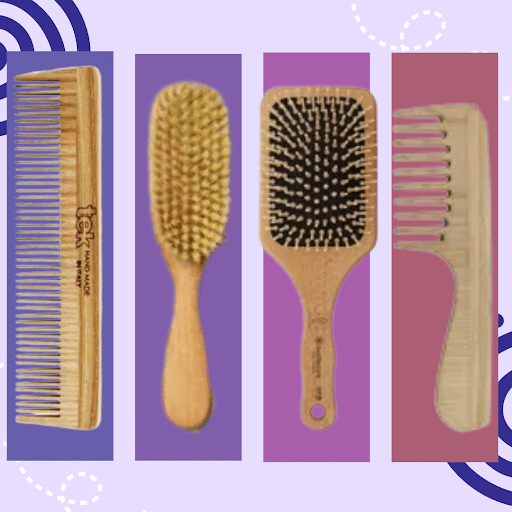
Instead of plastic brushes and combs, switch to an all-natural hairbrush made with beechwood and plant fiber bristles or a handcrafted wooden comb. They are much nicer to use and easier on your hair. While used plastic brushes can be donated, broken plastic brushes have to be placed in the trash because our Materials Recovery Facility only accepts plastic bottles and containers. The plastic brushes contain a range of materials that microorganisms cannot decompose. Discover some sustainable options that could work for your hair type here.
Deodorant
Traditional deodorant has a lot of plastic packaging that cannot be recycled in the Blue Bin. Consider switching to a deodorant cream in a glass container, a deodorant stick in paperboard packaging or a refillable deodorant. Better yet, make your own homemade deodorant! To view sustainably packaged deodorant and steps to make your own visit this website!
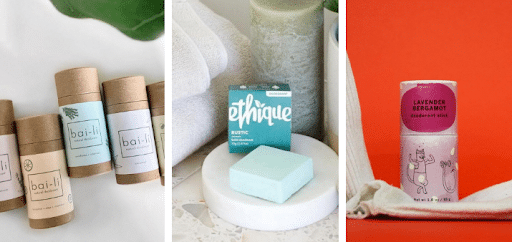
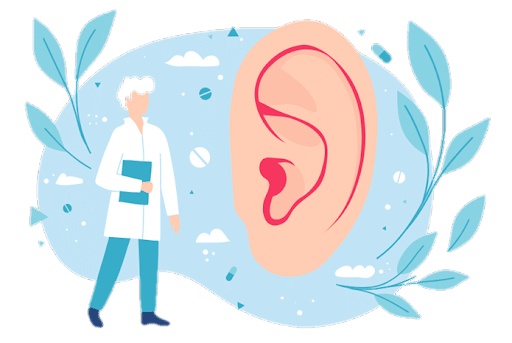
Q-tips
Q-tips, or cotton swabs are another source of landfill waste. If you use them to clean your ears, first consider that most otologists actually advocate against this (it can impact wax and damage the ear canal). If they are a must have then you can find some reusable and biodegradable options here!
Cotton pads / rounds
Cotton pads, rounds and balls are great for removing make-up or applying toners but are not so great for our environment. They cannot be recycled or reused and must be placed in the trash. An easy sustainable solution is to use an old t- shirt. You can store the clean and dirty ones in separate jars then just wash the dirty ones and reuse! Here is a great tutorial for making your own cotton rounds!
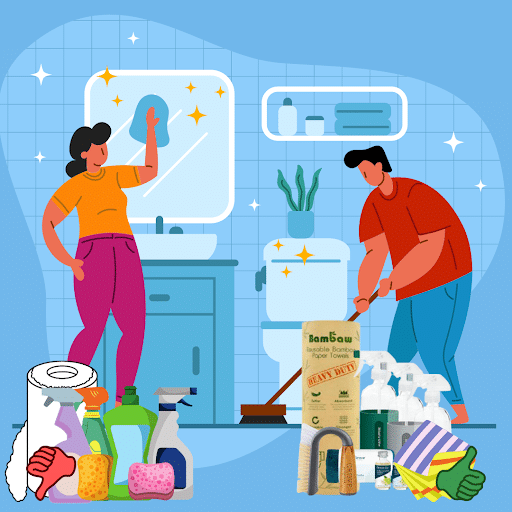
Sustainable Cleaning
Bathroom cleaning is certainly necessary but there is no need to harm the environment while cleaning! Check out these sustainable cleaning swaps below!
Cleaning solutions – Instead of buying multiple plastic bottles of cleaning solution, switch to a refillable all purpose cleaning spray or other naturally derived cleaning products that are refillable. Plastic bottles can be recycled in the Blue Bin, just make sure they are completely empty and replace the lid or spray nozzle. Visit this site for some natural and refillable cleaning products.
Cleaning Cloths – Instead of disposable paper towels, switch to reusable cloth towels or use old t-shirts as rags for cleaning.
Other Resources
If you’d like to take your sustainability initiatives even further than toothpaste tablets and shampoo bars, explore the world of do-it-yourself (DIY)! DIY projects have been gaining popularity because of Pinterest and they haven’t stopped. There are so many recipes to make your own toothpaste, soaps, shampoo and conditioners, shaving creams, dry shampoo and makeup removers! A great resource for finding recipes to make your own personal care products are at DIY Natural.
With so many options to choose from, it is possible to find a solution that fits your budget. While you’re making the switch to more eco-friendly, low-to-no waste bathroom products, be conscious of the plastic packaging items come in. Check out our blog on “precycling” to learn more about how to reduce non-recyclable packaging waste.






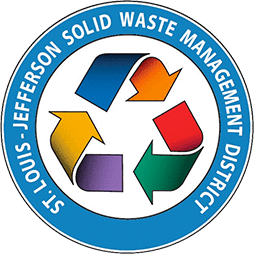



4 Comments
Excited to have found your group.
The most sustainable option for toilet paper is from recycled paper! In St Louis, you can get it from Garrett Paper and it’s not even wrapped in plastic!
That’s great to know, thanks for commenting!
This is the best way to Save our environment. using the recycled product can save our earth from the unwanted wastage. Thanks for sharing this information with us.
1 Trackback